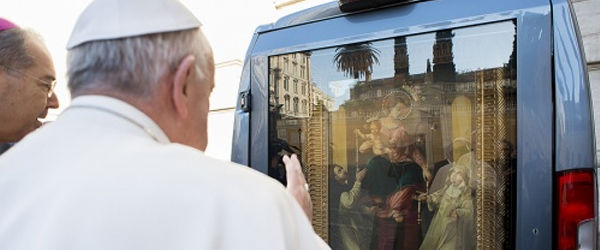Call us “out of it,” unaware or just plain weird, but my wife and I have never watched a frame of “Survivor,” “American Idol” or most of the so-called big-deal reality shows that use weekly elimination (and a certain amount of humiliation) as a lure to draw viewers.We did watch “Dancing With the Stars” regularly until the past year, dismayed and disgusted that too many talented dancers were being eliminated in favor of far less talented but allegedly more popular “celebrities” who were kept on by viewers relentlessly encouraged to “keep their favorites” in contention, rather than the best dancers. (The fact that the best two or three dancers almost always made the finals, and that their dancing is often jaw-droppingly spectacular, was no longer enough to keep us sitting through entire seasons.)So it was quite by accident that last year we came upon NBC’s “The Sing-Off” (“by accident” is about the only way NBC attracts viewers these days, but that’s another column). The format looked familiar: singers (in groups instead of soloists) competing for fame and fortune, being judged by peer experts, with weekly eliminations.But we quickly noticed that there were some appealing aspects to “Sing-Off” (Mondays, 8 p.m. PST) that, from what we know, aren’t present in most of its reality-elimination brethren:---The groups must sing a capella --- no instrumental accompaniment, no studio wizardry, no techno-shmeckno gimmicks. In other words, no fooling: If you can’t sing, people are going to know.---The groups collectively are a splendid representation of America’s cultural, racial and ethnic diversity, with a number of groups including male and female singers.---While most of the group members are young adults, there have been older groups reaching the elimination rounds in the past two seasons: a pair of doo-wop style male ensembles who clearly held their own with the younger set.---The judges (all professional singers) are not there to snipe and snark. They offer detailed critiques that are, when necessary, critical, pointing out specifically where groups might have come up short and how they might improve, but they also are generous with praise. There is a spirit of cooperation and mutual support within each group, and even for their rivals, that is genuinely touching and uplifting in an age where bad-mouthing is too often celebrated and encouraged.
Which is good, because each of the groups are really, really good at what they do. You cannot fake your way to a title here, you cannot count on fans blindly casting their votes for you; you either perform well or you are out, and the slightest drop in pitch, stumble in word, loss of tempo will send you on your way.
And that’s actually a shame, because there was very, very little to choose from in quality among the top eight groups (which, as of this week, are down to five). It is impossible not to develop a rooting interest for one or two of the contenders, but it is impossible not to appreciate the genuine talent and creativity present in each group (and, for that matter, in each group member).
That leads to perhaps the best point about the “Sing-Off”: the sheer joy in watching and listening to what a group of people can do when they work together. Yes, there is room for individuals to showcase their voices, but in this kind of endeavor, an individual talent matters only when it serves the group. It is, after all, called “The Sing-Off,” not “The Show-Off.”
Moreover, beyond the skill and enthusiasm they have for their craft --- and, certainly, their desire to win the competition --- there is a spirit of cooperation and mutual support within each group, and even for their rivals, that is genuinely touching and uplifting in an age where bad-mouthing is too often celebrated and encouraged.
Cooperation and support are words (behaviors, actually) that should resonate in our own lives as Catholics, particularly with respect to our liturgies, and most especially our roles as full, conscious and active participants in our Sunday celebrations. Whether we are “in the spotlight,” as it were (lectors, altar servers, presiders, cantors, etc.), or in the assembly, we each have the same responsibility if the liturgy is going to serve its purpose --- not, of course, to entertain or to leave us “feeling good,” but to inspire us to become full, conscious and active servants of Christ, to make our world a better place.
In a community of believers that collectively forms the Body of Christ on Earth, anything worthwhile takes a group effort --- something to consider as we celebrate Sunday Mass. Perhaps we cannot make music as skillfully as the talented contestants on “The Sing-Off,” but by realizing who we are, and who we serve, we can certainly make a noise every bit as joyful.
---Mike Nelson

